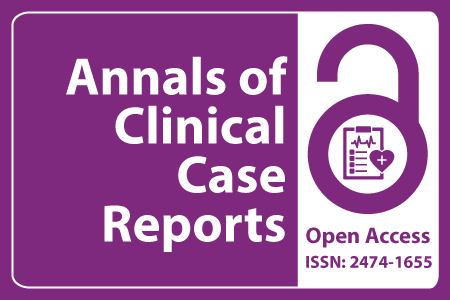
Journal Basic Info
- Impact Factor: 1.809**
- H-Index: 6
- ISSN: 2474-1655
- DOI: 10.25107/2474-1655
Major Scope
- Urology Cases
- Oncology Cases
- Pneumonia
- Tuberculosis
- Pharmacology and Therapeutics
- Endocrinology
- Chronic Disease
- Veterinary Sciences
Abstract
Citation: Ann Clin Case Rep. 2023;8(1):2535.DOI: 10.25107/2474-1655.2535
A Novel Truncating Variant in MYBPC3 Causes Hypertrophic Cardiomyopathy
Yuanyuan Zhang1, Wenyan Gong2, Xiaoling Xu3, Yusheng Cong3, Xingwei Zhang2* and Zhelan Zheng1*
1Department of Cardiovascular Ultrasonic Center, The First Affiliated Hospital, Zhejiang University School of Medicine, Hangzhou, China
2School of Clinical Medicine, Affiliated Hospital of Hangzhou Normal University, Hangzhou Normal University, Hangzhou, China
3Key Laboratory of Aging and Cancer Biology of Zhejiang Province, School of Basic Medical Sciences, Hangzhou Normal University, Hangzhou, China
*Correspondance to: Xingwei Zhang
PDF Full Text Research Article | Open Access
Abstract:
Background: Familial Hypertrophic Cardiomyopathy (HCM) is the most common genetic cardiovascular disease. Related mutations contributing to hypercontractility and poor relaxation in HCM have been incompletely understood. The purpose of this study was to explore and verify a novel variant in cardiac Myosin-Binding Protein C3 (MYBPC3) in a HCM family. Methods: Clinical information was collected and cardiac evaluation was performed in the pedigree. Second-generation sequencing technology was used to investigate the proband and his family. Computational prediction of mutation effects at genomic level and 3D visualization of the mutated protein were achieved by in silico analysis. Results: Typical interventricular septal thickening was detected in all the four HCM patients. A c.1042_1043insCGGCA mutation of MYBPC3 was verified in the proband and family members. Mild phenotype associated with delayed onset and relative favorable prognosis were observed in the pedigree. In silico analysis of the mutation revealed that c.1042_1043insCGGCA led to an early termination of MYBPC protein synthesis at C2 domain, losing the domains that are essential for myosin- and titin- binding. Conclusion: The novel c.1042_1043insCGGCA mutation of MYBPC3 was a genetic basis for HCM. Our gene sequence based computational analysis predicted the pathogenicity of the mutation by correlating MYBPC3 genotypes with clinical phenotypes.
Keywords:
Cite the Article:
Zhang Y, Gong W, Xu X, Cong Y, Zhang X, Zheng Z. A Novel Truncating Variant in MYBPC3 Causes Hypertrophic Cardiomyopathy. Ann Clin Case Rep. 2023; 8: 2535..













